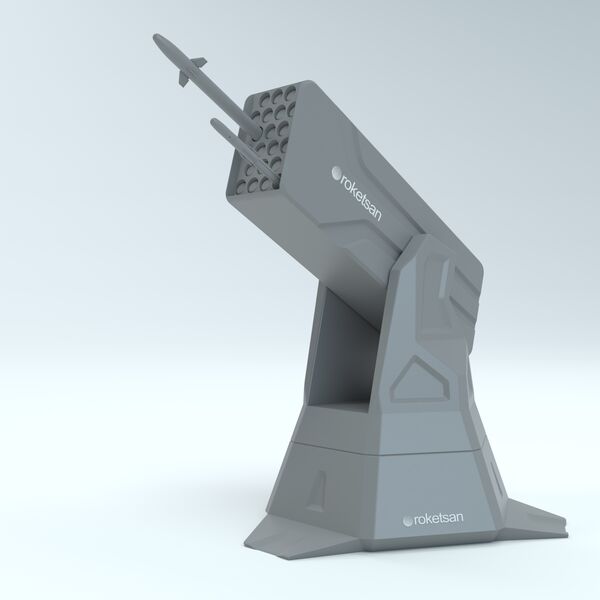
Roketsan's Levent close-in-weapon system. (Roketsan)
Turkish missile manufacturer Roketsan displayed its newly developed Levent (‘Sea Soldier') close-in air defence system (CIADS) at the Doha International Maritime Defence Exhibition and Conference (DIMDEX) 2022, held in Doha, Qatar.
The 21-cell missile system is designed to launch the naval version of the Sungur short-range anti-air missile, and is also capable of firing cruise missiles and sea-skimming missiles, a company spokesperson told Janes .
Levent has been developed to be fitted as an integrated CIADS on board the Turkish Navy's next-generation fast attack craft (FAC), to be designed by STM under a contract signed with the Turkish Presidency of Defence Industries (SSB) in August 2020. The 24-month FAC design phase (phase I) will be followed by the prototype production phase (phase II), which is expected to last 30 months under a separate contract.
Levent can operate as a standalone missile system or can optionally be integrated with the shipboard combat management system, depending on Turkish Navy requirements.
It has been designed to operate at supersonic speeds while delivering ordnance at extended ranges, specifically against surface targets. It can operate in manual, semi-automatic, and fully automatic modes.
Levent will be equipped with an indigenous sensor package, exploiting the expertise gained through previously developed air-defence projects.
The Sungur short-range anti-air missile has a maximum range of 8 km, a minimum range of 500 m, and a flight altitude of 4 km above sea level. The missile operates in a ‘lock-on before launch' mode and is integrated with a blast fragmentation warhead. Propelled by a two-stage propellant, it is guided in its terminal leg by an imaging infrared seeker.
Looking to read the full article?
Gain unlimited access to Janes news and more...







